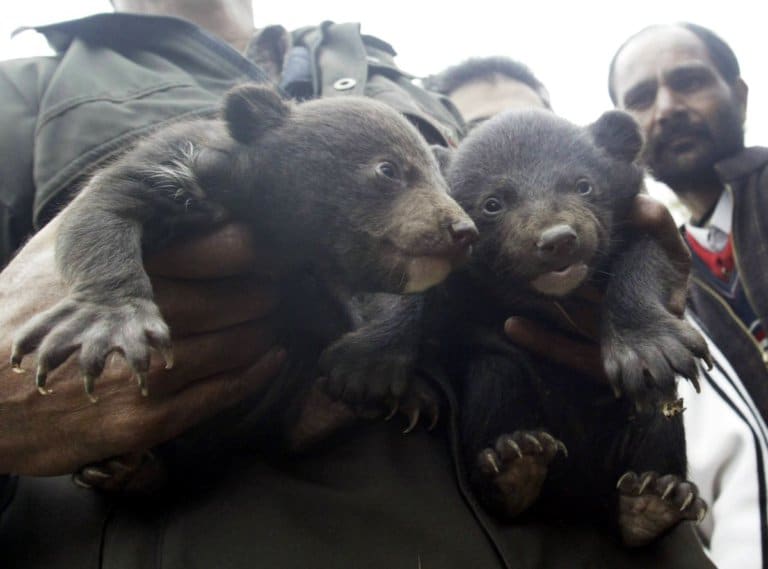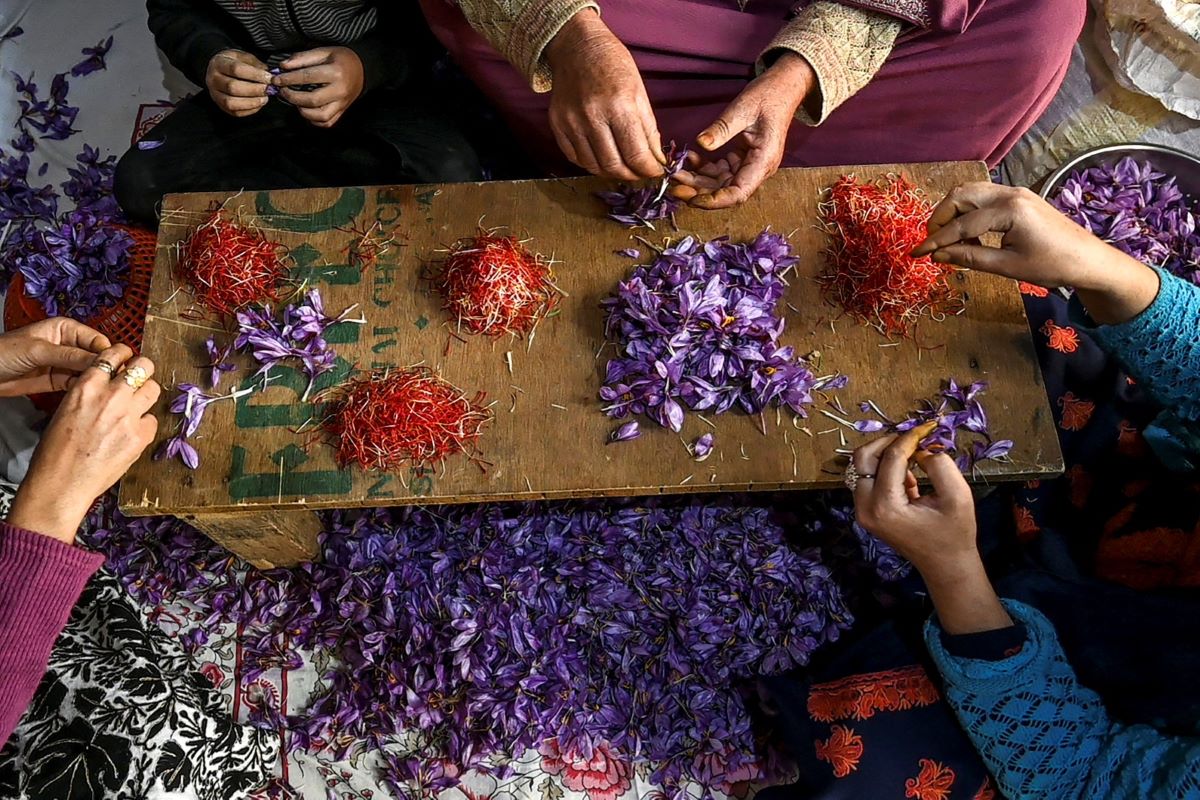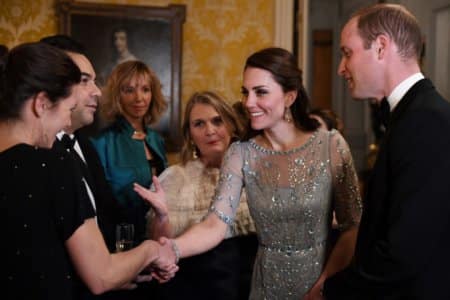
During the 18th century, when the English conquered India, the beauty of the Indian language rubbed off on them and crept its way into the English lexicon — giving birth to many amazing and beautiful English words from Hindi.
As the official language of India, a country with a population of over a billion people, Hindi plays a central role in communication, governance, and cultural expression.
While India boasts many languages — up to 100 — Hindi is a common language everyone shares.
It is the third most spoken language in the world, with over 615 million speakers worldwide.
So it is no surprise that during the course of a long colonial history in India, English developed and absorbed numerous words from Hindi.
The first Hindi words to find their way into English were linked to trade and commerce.
Words such as “rupee,” “paise,” and “paisa” were borrowed to denote Indian currency.
As British traders engaged in the spice and textile trade with India, they were introduced to words like “ginger,” “bungalow,” “pajamas,” and “shawl.”
Even after India gained independence, the English vocabulary continued loaning words from Hindi.
What you may not know is that some of these borrowed words have become common in everyday usage. Unfortunately, little is known about their Hindi origins.

We can thank the world’s love for spices for the many English words from Hindi. Source: AFP
Extraordinary exchange: How English words from Hindi came to be
English holds the distinction of being not only the most widely spoken language globally but also the most influential. Continuously evolving and adapting, English add new words to its dictionary every year.
There is no denying that learning English proves to be immensely valuable. It is the official language in 67 countries, spoken by over 1.5 billion people, and extensively used in many prestigious universities worldwide.
Even in countries where English is not the official language, it takes second position as the most spoken language globally.
However, despite its global reach English is a language with a complicated history of borrowing words from various sources due to the influence of different cultures, conquests, trade, and globalisation.
As a result, the English language has absorbed words from many other languages, which has contributed to its vast and diverse vocabulary.
Did you know that around 80% of the English language consists of words loaned from other languages?
What this means is that there is no such thing as pure English. It is the product of a fusion of various linguistic influences — with many of its loanwords coming from Latin, French, German, Hindi and more.

As yoga became a global hit, it further increased the number of English word from Hindi. Source: AFP
However, the borrowing of Hindi words from English is not a one-way street.
English has also reciprocated by contributing words to Hindi, particularly in the fields of science, technology, and administration. Terms such as “computer,” “telephone,” “internet,” and “democracy” have become a part of the Hindi vocabulary, reflecting the global reach of the English language.
From trade and cuisine to spirituality and cinema, Hindi has left its mark on the global scale.
As the world becomes increasingly interconnected, the mutual exchange of words between languages serves as a reminder of the beauty of language evolution.
Beyond India’s borders, Hindi has made its mark as a result of India’s spread across the globe, from its Tata machines to its tech talent, the likes of Alphabet CEO Sundar Pichai and Microsoft CEO Satya Nadella.
With Indian communities in many countries, Hindi has become a part of multicultural societies, influencing the cuisines, festivals, music, and films of different nations.

Will Smith picked up on Hindi during his visits to India. Source: AFP
The influence of Bollywood, the Hindi-language film industry, has also played a big role in popularising Hindi words in English-speaking cultures.
From Hollywood actors to world-renowned musicians, Hindi has left its mark on a range of personalities, showcasing its global appeal and significance.
One of the most iconic Hollywood actors associated with Hindi is Richard Gere. Known for his roles in movies like “Pretty Woman” and “Chicago,” Gere developed a keen interest in Buddhism and Indian spirituality, which led him to learn Hindi.
He has been vocal about his admiration for India’s culture and has actively engaged in charity efforts in the country.
Hindi has even made its way into sports. NBA basketball player Satnam Singh Bhamara has been a prominent ambassador of Hindi and Indian culture.
Hailing from Punjab, Bhamara became the first Indian-born player to be drafted into the NBA, inspiring millions of Indian youths to pursue basketball and embrace their roots.
So, grab yourself a cup of chai and discover these English words from Hindi you never knew you’ve been using all your life:

The Darjeeling Himalayan Railway’s (DHR) narrow gauge locomotive, also known as the “Toy Train,” ferries passengers through thick jungles, one of the English words from Hindi that are widely used today. Source: AFP
10 everyday English words from Hindi you’ve probably been using all your life but never knew
1. Jungle
Originating from the Hindi word “jangal,” which refers to a wild wasteland, English settlers in India adopted it to describe untamed, uncultivated land with vegetation, including scrub landscapes and tangled forests.
This word derives from Sanskrit, and evidence of its usage in the English language dates back to 1770–80.

The word “pyjamas” was actually borrowed from Hindi. Source: AFP
2. Pyjama
First appearing in the English language around 1870–75, it is a variant of the Hindi term “pāyjāma.”
Breaking down the word, “pay” stands for leg, and “jama” refers to clothing, signifying comfortable, loose, and lightweight trousers with drawstring waistbands.
Although today they are often worn all day, especially at a time where we’re working from home more than ever, “pyjamas” are traditionally referred to as night clothes. ”
3. Bungalow
Initially used in 17th-century Bengal to describe single-storey homes for early British settlers, the English term “bungalow” has its roots in the Hindi word “bangla,” which means houses constructed in the Bengal style.
Originally referring to the cottages built for early European settlers in Bengal during the 17th century, the word endured throughout the colonial era and beyond.

Did you know that “shampoo” is one of the many English words from Hindi? Source: AFP
4. Shampoo
Who knew the word “shampoo” actually derives from Hindi?
Having become a part of the English language in the 18th century, “shampoo” is derived from the Hindi word “champo.”
This word means to squeeze, knead, or massage. The term was introduced in Britain by a Bengali trader named Sheikh Deen Mohammad, who was honoured with the title of “shampooing surgeon” to George IV and William IV.
5. Juggernaut
The word “juggernaut” has its roots in the “Jagannath yatra,” a religious procession featuring a giant carriage carrying the image of Lord Jagannath, a spectacle witnessed in the Indian city of Puri.
Proof of its usage in the English language can be traced back to around 1630–40. The word comes from the Hindi word “Jagannāth,” which is from the Sanskrit word “Jagannātha,” translated to “lord of the world.”
Franciscan missionary Friar Odoric is credited to have transported this word to Europe when he spoke about his travels in Puri.
The imagery stuck symbolising something massive and unstoppable, but “Jagannath” transformed into “juggernaut.”
Today, “juggernaut” is used to describe any huge, large, overpowering and destructive force, ranging from pandemics like COVID-19 to unstoppable football teams like Manchester United under Sir Alex Ferguson’s management.

“Cashmere” is an old spelling of “Kashmir.” Source: AFP
6. Cashmere
The term “cashmere” arrived in the 16th century, describing the shawls made from the wool of goats by Kashmiri artisans on the Silk Route.
The word is an old spelling of “Kashmir,” the namesak of the region where these shaggy goats were once abundant.
In the late 18th century, cashmere shawls were exported to the West, particularly to the UK and France.
7. Bangles
Adopted into English during the late 18th century, “bangle” refers to a rigid bracelet, usually made from metal, glass, or plastic that is worn in many cultures around the world.
It thought to have originated from the Hindi word “bangri,” a type of glass ring bracelet or ornament for the wrist.
South Asian cultures often wear metal bangles as a fashion accessory as well as for religious reasons.
8. Thug
This one might come as a bit of a surprise. The word “thug” comes from the Hindi word “thag.” Aside from similar spelling, these two words also have similar meanings.
In Hindi, this word means thief or swindler. And though it sounds recent, there’s evidence of the word emerging as far back asthe 19th century. The “thags” were an organised gang of notorious thieves, robbers, and conmen travelling across India. After befriending travellers, they’ll loot and kill them.

Chutney, one of the many English words from Hindi used today, is derived from the Hindi word “chatni” which means “to lick”. Source: AFP
9. Chutney
You may have encountered chutney as you enjoy a samosa, but did you know that the word chutney actually derived from Hindi?
It comes from the Hindi word “chatṭni”, which actually means “to lick”. In India, chutney refers to a pickled condiment made from fruits or vegetables, vinegar, spices and sugar.
This word was added to the English language back in the 19th century when the British began exporting their favourite chutneys to their colonies in Australia and North America.

Who knew there were billions of people speaking the language of the Mughal Empire through these amazing English words from Hindi? Source: AFP
10. Bandana
By fusing two Hindi words — “badhnu,” which describes the process of tie-dyeing large handkerchiefs with vibrant designs, and “bandhana’,” which means to tie something up — we get the English word “bandana.”
Traditionally, Indian bandanas were made from cotton or silk and embroidered, but the ones that became popular in the west were typically made of cotton and printed.










